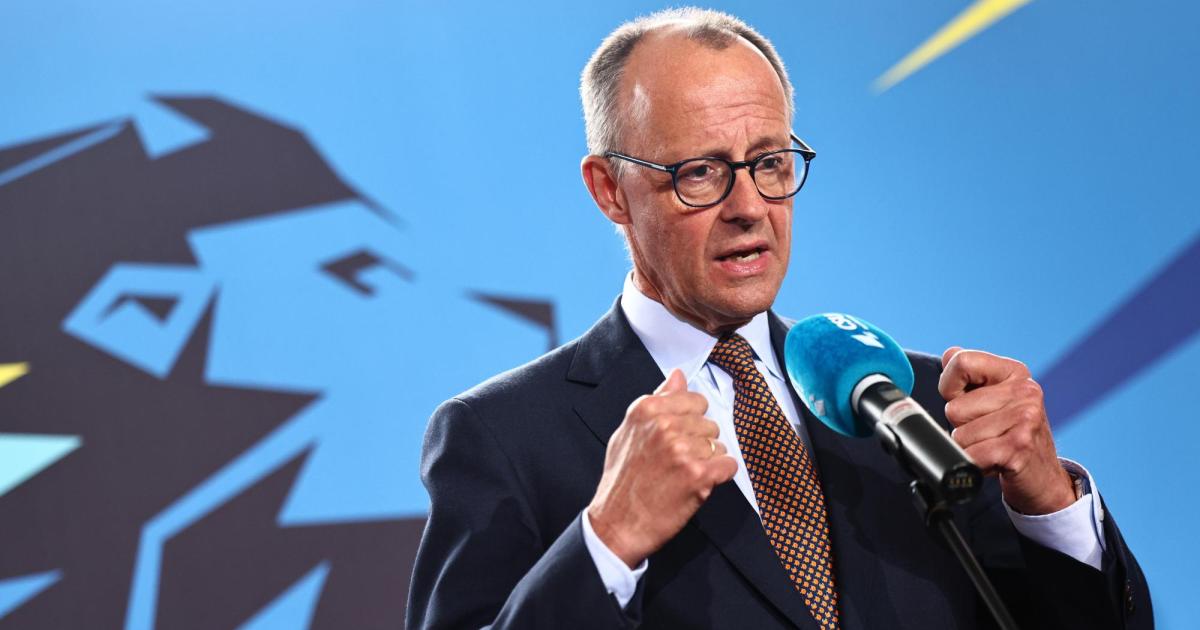The CDU/CSU is entering the hot phase of the process with clear requirements for possible future coalition partners German election campaign started.
“There will be an end to this economic policy. There will be an end to this immigration policy. There will be an end to this naive foreign policy,” said candidate for chancellor Friedrich Merz (CDU) on Wednesday at the closed meeting of the CSU– Bundestag members in the Bavarian monastery of Seeon in the event of an election victory for the Union on February 23rd.
“Then they stay at the side of the road”
“That’s why all those who want to govern with us must ask themselves whether they want to change on these issues or not. If they don’t want to change, then they will remain on the sidelines,” he added. The CDU and CSU are currently clearly in first place in surveys.
Merz also emphasized a growing distance from them Greenswith whom the CSU even rules out a coalition. Over Christmas he spoke again about the economic policy of the Green Party candidate for chancellor Robert Habeck employed, to whom he certified a catastrophic balance sheet.
Push for course changes
The CDU leader named several areas in which the Union insists on a policy change: If he wins the election, he will tackle a comprehensive tax reform in four stages by 2029, advocate for a massive reduction in bureaucracy in the EU, in which Labor market policy about that Citizen’s money abolish, strengthen Germany’s security and Germany’s role in European and world politics. CSU boss Markus Söder added that the Union would drastically tighten migration policy. According to participants, Merz categorically ruled out a coalition with the right-wing AfD in discussions with the CSU in Seeon.
Alluding to developments in Austrian domestic politics and a possible FPÖ chancellor, Söder warned that after the federal election in Germany there must be not just a change of office, but a change of direction. “This is fundamentally crucial so that things in Germany don’t end up like those in other countries in Europe.” Because there has often been no change in policy, populists have become increasingly stronger.
In the Migration policy the CDU leader clearly distanced himself from the former CDU Chancellor Angela Merkel. “Illegal migration must be stopped and legal migration must be managed,” he said. He knows what mistakes his CDU made in 2015, 2016 and 2017.
The SPD clearly distinguishes itself from the Union
Die SPD from Federal Chancellor Olaf Scholz Sees Germany facing a “directional decision” with a view to the election. “It’s about very different concepts,” said the Secretary General, especially compared to the Union Matthias Miersch on Wednesday in Berlin in advance of the SPD federal party conference on Saturday. He accused Merz of wanting to move away from the previous concept of a social market economy.
“We want to relieve the burden on the 90 percent of citizens who keep this state running,” Miersch continued. In its election program, however, the Union advocates for relief for the “top five percent”. The SPD is also calling for a reduction in VAT on food, an increase in the minimum wage and a safeguarding of pension levels. The CDU/CSU rejects the latter.
The SPD politician also spoke out against turning away from the Climate protection. “I cannot imagine that the SPD is involved in a government in which the issue of climate protection does not play a very important role,” said Miersch. He assured that this would “not be sacrificed” by the SPD in possible coalition negotiations.
The SPD wants to officially name incumbent Olaf Scholz as its candidate for chancellor at its party conference. In addition, the election program of the Social Democrats is to be decided.
